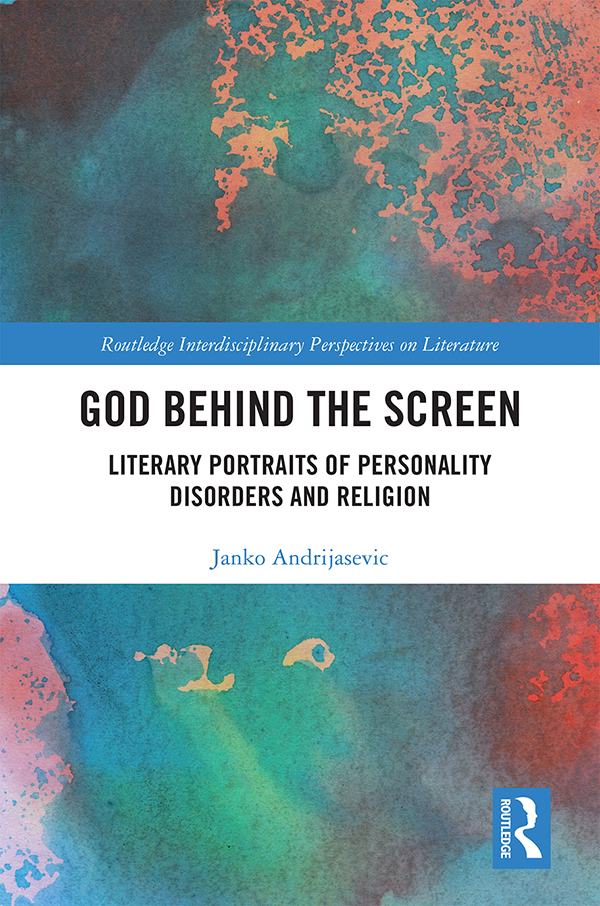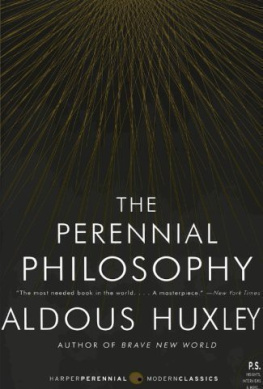
God Behind the Screen
Here is a well-written, insightful and deeply engaging analysis of what interests readers most: the quest for human destiny. Whether we are reading novels, poetry or books on psychology, philosophy or spirituality, the overarching project is to figure out who we are, as individuals and a species. In God Behind the Screen we find a rich and multidisciplinary analysis to help us on our way. I found this book impossible to put down.
Dana Sawyer, The Maine College of Art
This interdisciplinary study of literary characters sheds light on the relatively under-studied phenomenon of religious psychopathy. God Behind the Screen: Literary Portraits of Personality Disorders and Religion identifies and rigorously examines protagonists in works from a variety of genres, written by authors such as Aldous Huxley, Jane Austen, Sinclair Lewis, and Steven King who are both fervently religious and suffer from a range of disorders underneath the umbrella of psychopathy.
Janko Andrijasevic is a Professor of English Literature at the University of Montenegro. His areas of interest include Aldous Huxley, medical humanities, spirituality, and psychology in literature. He has published a monograph on religion in Aldous Huxleys work, as well as two short novels, all in Serbo-Croatian.
First published 2019
by Routledge
711 Third Avenue, New York, NY 10017
and by Routledge
2 Park Square, Milton Park, Abingdon, Oxon OX14 4RN
Routledge is an imprint of the Taylor & Francis Group, an informa business
2019 Taylor & Francis
The right of Janko Andrijasevic to be identified as author of this work has been asserted by him in accordance with sections 77 and 78 of the Copyright, Designs and Patents Act 1988.
All rights reserved. No part of this book may be reprinted or reproduced or utilised in any form or by any electronic, mechanical, or other means, now known or hereafter invented, including photocopying and recording, or in any information storage or retrieval system, without permission in writing from the publishers.
Trademark notice: Product or corporate names may be trademarks or registered trademarks, and are used only for identification and explanation without intent to infringe.
Library of Congress Cataloging-in-Publication Data
CIP data has been applied for.
ISBN: 978-1-138-33904-0 (hbk)
ISBN: 978-0-429-43804-2 (ebk)
Typeset in Sabon
by codeMantra
At any given moment, the reality of existence oscillates at multiple levels, both parallel and intersected. The multifaceted and interlaced levels of existence are too complex to be grasped rationally. This is why the history of thought and science consists only of probing into various cross sections and segments of reality, while the complete phenomenon in its fullness lies outside our reach. All philosophies and perspectives are necessarily simplifications of the world, and as simplifications, certain things are necessarily omitted. In sciences attempt to research specific subject areas, the reductionist approach is frequently taken, in which the phenomenon under the microscope is isolated from the rich context it belongs to. Less often, the inclusive approach is applied, which involves an awareness of the context the subject matter is holistically embedded in. In the first case, we get a more detailed, and in the second, a more genuine, picture of things.
Certain phenomena have frequently been at the center of various studies (either analytical or synthetical), while others, for unknown reasons, have slipped out of focus, dwelling in the shadows like some exotic, endemic species, despite having been present in reality since time immemorial.
One insufficiently researched phenomenon in the field of greater humanities is how people with personality disorders mask their malfunctions with the semblance of religiosity. Or, more precisely, these are the cases in which a disordered psychological level of existence overpowers the spiritual one, which lies at a more profound depth; a pathological personality structure thus skews spirituality. As a consequence, there often emerges a person who believes in the righteousness of their own religious standpoints and practices, which, in fact, are immature, inauthentic, and unwholesome.
The belief in a system of reality that transcends the material world goes back to the birth of human society. However, in contrast to benign epiphanies about a higher ground that have been occasionally occurring, there have also evidently been forms of malign, distorted religiosity. Although hypotheses about the use and misuse of belief in early human societies belong to the realm of speculation, later history abounds in concrete instances of unwholesome religious states of mind: religious fanaticism, masochism, obsession, hypocrisy, and so forth.
Despite the aforesaid, deluded religiosity has so far been considerably neglected as one of the important areas of humanistic research. Psychology of religion is still a marginal branch of psychology, while religion and psychopathology represents only a minor portion of it. However, if we note that the latter is not only about bizarre religious experiences of certain individuals, but that throughout history it powerfully, and at times fatally, affected larger masses of humanity, it is surprising that religious psychopathology remains such a neglected area of research. There may be many reasons for this, but they lie beyond the scope of this book. Instead, this study is a modest contribution to the subject, with the hope that it might elicit greater academic interest in this field.
The initial motivation for this book was my primary curiosity about some basic aspects of our inner lives: the psyche, the spirit, the creativity, and how they interact. While it is generally agreed upon that the roots of all three lie deep down in the layers of our unconscious being, it might be more contentious to ask whether they emerge from the same plane of unconsciousness, or from unconscious planes that are qualitatively different? And if these planes are hierarchically structured, which one is at a higher, and which at a lower ontological level? How do they influence one another, if indeed they do? And do they bolster or corrupt one another, or is it that perhaps they do the former in some cases and the latter in others? These are some of the relevant epistemological questions this book will explore.
The theoretical focus in this study will be on the relationship between the psychological and the spiritual levels of being. The representation of the creativity level is mostly practical: to illustrate the interrelationship between the psychological and the religious, I have used exclusively the creative works of literature written in the English language. Creative works other than literary fiction are not referenced.
This book begins with considerations of the major levels of personality, touching upon several models that have been in psycho-scientific and religious circulation for several decades. According to some teachings, a human being is nothing but a mechanism, and consciousness merely a (by-)product of its functioning; therefore consciousness is inseparable from the physical. A somewhat wider and traditionally more accepted idea is that we have a body and a soul. The soul is sometimes considered to be monolithic, sometimes bipartite (psyche and spirit), and sometimes tripartite (psyche, soul, and spirit). In further analysis I am leaning mostly on the ontologicanthropologic dimensionality as expounded by Viktor Frankl, whose personality model consists of three existential levels the somatic, the psychic, and the noetic, all of which are intertwined and integrated with three levels of awareness the unconscious, the subconscious, and the conscious. For the purpose of this book, most attention will be given to the interactive, two-sided influence between the psychic and the noetic existential planes.
Next page









